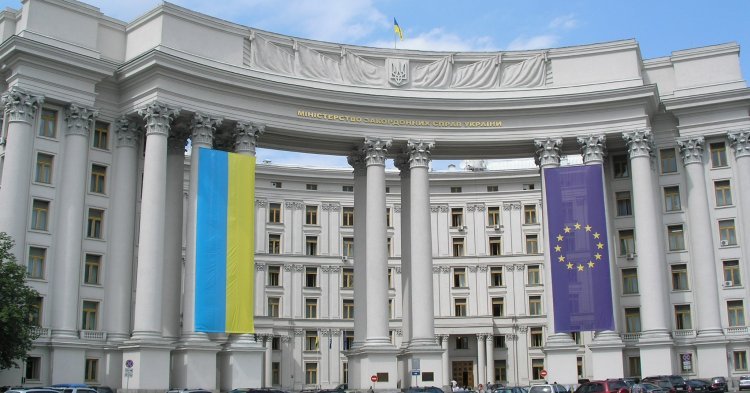Much has been said about the shift to Moscow that Ukraine has taken with its new president Viktor Yanukovych, but is this a threat to the cooperation with Ukraine, and therefore to the Eastern Partnership strategy? Not necessarily. Experts like Andrew Wilson or Fredrik Erixon agree that what really matters for the EU is the degree of stability and effectiveness that this change can bring to the government. After all, the Union was strongly disappointed with the pro Western governance of the former president Yushchenko and prefers a political situation with the possibility of carrying out negotiations and implementing resulting policies. The EU-Ukraine summit held this Monday in Brussels confirmed this tendency, and even Van Rompuy explicitly cited the much-anticipated stability situation as a good opportunity to start macro economical reforms the EU has been waiting for a lot.
Pro-Ukrainian
If the question is to see whether Yanukovych’s government is pro-Russian or pro-European, we could easily think that it is both, and therefore contradictory. On the one hand it is very different from the one led by Tymoshenko when she spoke about having to contain Russia three years ago. Yanukovych’s government even had the parliament converted in a battle field last April in order to authorize the Russians to keep their base in Crimea. On the other hand, Yanukovych has been in Brussels already three times this year, and it seems that his country is taking steps to facilitate the cooperation and technical assistance to fully implement the concrete articles of the Association Agreement decided in 2008.
Then, which are the political priorities of this government? Analysts like Shapovalova put it clear. Yanukovych’s government is neither pro-Russian nor pro-European, but pro-Ukrainian. As any political actor, Ukrainian elites will remain as long as they can in the most advantageous place, which is right now a loose equilibrium between the two poles. Of course, I am not denying that the profound division of the country makes the government more sensitive to the side it identifies with, but besides that, there are facts no government can overlook, such as the EU being the first commercial partner.
New steps in a strategic relationship
Almost every aspect of bilateral relations is going to be canalized in the future EU-Ukraine Association Agreement which will replace the old treaties and which will mean a new stage for the country’s external affairs. It also means inter alia access visa free travel, (an issue which was formally inaugurated this year’s summit) and a free trade area. All these are incentives for Ukraine, and now Europe should take advantage of it to support structural reforms in large areas such as democracy and freedom, corruption, judiciary or any other that might help Ukraine to become a fair market economy and a safer place.
Yanukovych’s government is neither pro-Russian nor pro-European, but pro-Ukrainian.
The paradox is that the EU is approaching a pro-Russian president more efficiently than it used to do with the former pro-European one. Even if it is true that some structural problems are still very vivid, such as rampant corruption or powerful oligarchies, the sole stabilization and better commands that produce having a president with a supportive prime minister and parliament, makes it easier for everyone to work on the Agreement. This is done with the intention of Europeanizing Ukranian political institutions, but where is the limit? Membership is too far away to worry anyone yet, but what is for sure is that Ukraine will have to face either a very Turkish style of negotiations, or the possibility of developing its own model of agreement with the Union, having at the same time a capable and independent state.
Mid-term perspectives
Despite the multiple gas crisis that affected parts of Western Europe, generally speaking the last years of this decade can be seen as positive for the EU-Ukraine relations, especially because of the advancement of freedom in the country since the so-called Orange Revolution. Even if Yanukovych will never be Euro enthusiast or push for Atlantic integration, the following years might be as good as the last ones. There are three very different reasons for optimism. The most important one is about the internal pluralism the Ukraine has reached which might be rapidly institutionalized during this legislature and is leading the advancement within the countries of the Eastern Partnership.
The second concerns the wider political framework. During the last NATO meeting in Lisbon last week, Russia was an important guest. The organization launched its new strategic concept, which clearly states the indivisibility of European defence, including Russia and encouraging security cooperation with it. This might help to change the excessive geopolitical view of Ukraine as a grey zone or a security space between Rusia and Europe. The third one is minor, but worth mentioning. Ukraine, together with Poland, is hosting 2012 UEFA championship, which might not be politically relevant, but it can be socially important in putting Ukraine on the map for many people and create stable economic flows if the macro economical stabilization plan is going to advance.

Follow the comments: |
|
